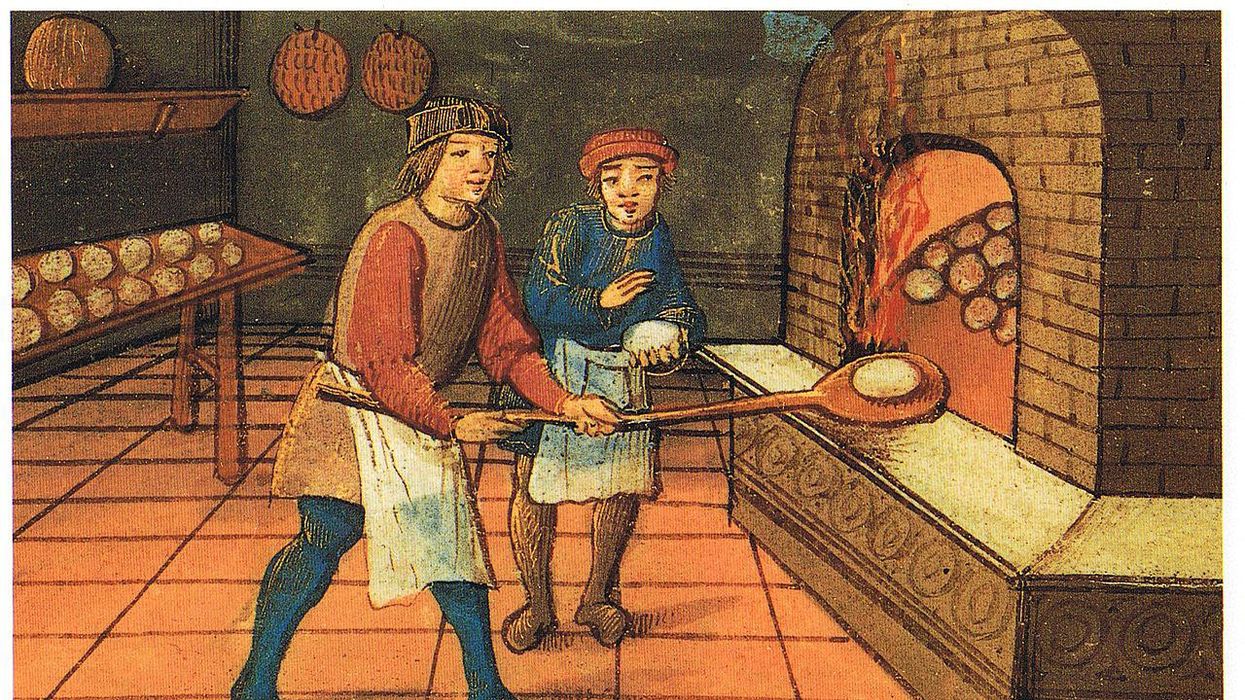Alito is drawing inspiration from a Medieval religious zealot who viewed women as ‘inferior’: journalist


Many critics of the Christian Right have argued that far-right social conservatives want to take the United States back to the 1950s, but it’s worse than that — they would like to take the U.S. back to the 1850s. And Washington Post opinion columnist Dana Milbank, in his May 9 column, takes that argument against social conservatism even further by saying that U.S. Supreme Court Justice Samuel Alito is looking to the 1250s for inspiration.
The U.S. government, of course, didn’t exist during the 13th Century. But Alito, in his leaked majority draft opinion making an argument for overturning Roe v. Wade, quoted English cleric Henry de Bracton’s “Tractatus de Legibus et Consuetudinibus Anglie,” a.k.a. “On the Laws and Customs of England” — a Medieval document that doesn’t exactly make an argument for the separation of church and state. De Bracton was born in 1210 and died in Exeter in 1268, and Milbank stresses that he held some incredibly “draconian” views when it came to religion, capital punishment and women’s rights.
“The Supreme Court justice is actually revisiting the 1250s, when the judge Henry de Bracton completed his summation of English law and custom ‘De Legibus et Consuetudinibus Angliae,’” Milbank explains. “Alito’s opinion, after mocking the Roe decision for its ‘discussion of abortion in antiquity,’ then provides a discussion of abortion in Medieval times.”
In his draft opinion on Roe v. Wade, Alito quotes de Bracton, who wrote that if someone has “struck a pregnant woman, or has given her poison, whereby he has caused an abortion, if the foetus be already formed and animated.… he commits homicide.’”
Alito’s reference to de Bracton was brutally mocked during the opening sketch on the May 7 broadcast of NBC’s “Saturday Night Live.” The sketch depicted a Medieval discussion about abortion and the law.
Milbank quotes some of de Bracton’s views on crime and punishment. For example, Milbank notes, de Bracton wrote, “Where he ought to be executed by the sword, he shall not be put to death in any other way, neither by the axe nor the spear, by cudgels nor by the rope. Similarly, those condemned to be burned alive ought not to be injured by floggings, whippings, or tortures, since many perish while under torture.”
De Bracton would not be mistaken for a feminist. The 13th Century jurist wrote, “Women differ from men in many respects, for their position is inferior to that of men.”
Milbank explains, “Bracton also outlines procedures for ‘viewing a woman to discover whether or not she is pregnant’ in which ‘discreet women’ should, in certain instances, ‘carefully examine her by feeling her breasts and abdomen and in every way’ to make sure she wasn’t faking. If the exam was inconclusive, the woman could be locked in a ‘castle at her own cost,’ where the exam would be repeated daily. Once the woman was found to be pregnant, ‘the time of conception, how, when, and where, and at what time she believes she is to give birth’ was to be made ‘known to our justices at Westminster.’”
Abortion rights supporters have long argued that Christian fundamentalists’ interest in babies ends after they are born. And Milbank points out that de Bracton had similar views during the 13th Century.
“He explains that ‘those born of unlawful intercourse, as out of adultery and the like, are not reckoned among children,’” Milbank observes. “Those children ‘born of prohibited intercourse.… are fit for nothing.’ You won’t find those passages in Alito’s draft opinion, either. But this Medieval court is just getting started.”